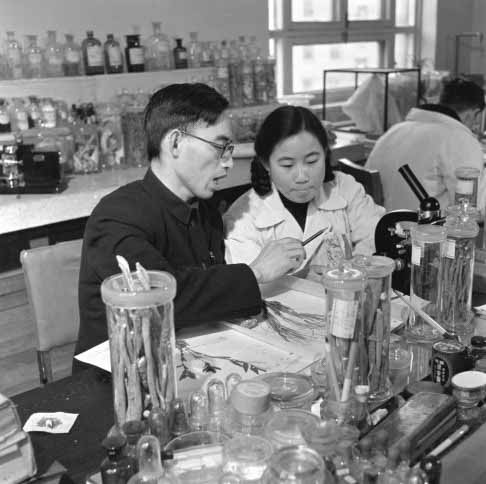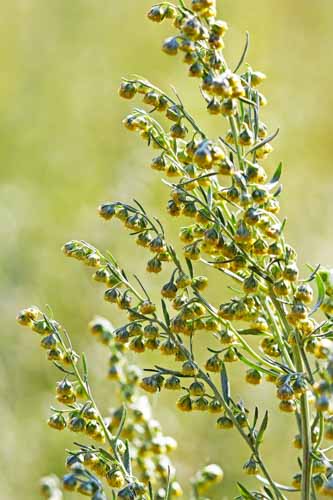Dr. Tu Youyou (Chinese Academy of Chinese Medical Sciences, Beijing) received both the Nobel Prize in Medicine and the Lasker~DeBakey Clinical Medical Research Award for developing an herbal based cure for malaria. Dr. Tu headed Project 523, a top secret Chinese military project seeking the cure for malaria in the late 1960s.  The Vietnam War was raging and the troops were suffering from malaria. By 1972, Dr. Tu’s team extracted Qinghaosu (artemisinin) from Qing Hao (Artemisia annua) and had successfully isolated a cure for malaria. Qinghaosu is safe for human consumption but is lethal to Plasmodia, the parasitic protozoans responsible for malaria.
The Vietnam War was raging and the troops were suffering from malaria. By 1972, Dr. Tu’s team extracted Qinghaosu (artemisinin) from Qing Hao (Artemisia annua) and had successfully isolated a cure for malaria. Qinghaosu is safe for human consumption but is lethal to Plasmodia, the parasitic protozoans responsible for malaria.
Dr. Tu investigated the efficacy of Qing Hao for the treatment of malaria because it was already in use for that purpose amoung Traditional Chinese medicine (TCM) herbalist-acupuncturists. As early as 340 CE, Ge Hong included Qing Hao as a cure for malaria in the classic work the Handbook of Prescriptions for Emergencies. Dr. Tu was familiar with this seminal classic of TCM. She then applied modern extraction techniques to concentrate the efficacy of the herb Qing Hao.
Instead of using a traditional high temperature water concentration method, Dr. Tu used a low temperature ether extraction method to preserve the active ingredients. Dr. Tu made several other important findings. She identified that the leaves contained the most significant amount of the active ingredients. She also determined the optimal time to harvest the plant to sustain maximum yields. In the process, she also removed acidic portions of the concentrate that did not provide anti-malarial benefits. As a result, the final concentrate was safe, potent, and effective. Qinghaosu rapidly reduces fevers and eliminates blood bourne parasites in patients with malaria.
Dr. Tu’s team performed all of the work manually. Today, automation helps in finding new cures for diseases. Hybrid combinations of Qinghaosu with other medications helps prevent Plasmodia from building up resistance to the cure. In the effort to provide a diversity of cures, the search continues for new ways to control or eliminate malaria.

The Novartis Institutes for BioMedical research used robots to test 12,000 natural compounds. They found one substance isolated from fungus growing on tomatoes, cladosporin, that inhibits Plasmodia. Next, they determined that cladosporin works by binding to a protein, lysyl-tRNA synthetase. The Novartis groups continue to follow-up on this discovery in hopes of finding additional ways to fight malaria. Currently, Novartis provides the drug Coartem® at no profit to public healthcare systems in countries with a high prevalence of malaria. Coartem® is an anti-malarial drug made from artemether (a semi-synthetic derivative of Qinghaosu) and lumefantrine.
At the Healthcare Medicine Institute (HealthCMi), we recognize the pressures on wild collecting and cultivation of Chinese medicinal herbs due to high demand. Increasing popularity of Chinese medicine and the use of herbs in supplements, soft drinks, and pharmaceuticals exceeds the carrying capacity for current production. This has led to overharvesting but other pressures including habitat loss and industrial pollutants are also major concerns. To address these issues, the Healthcare Medicine Institute has partnered with not-for-profit organizations and companies committed to sustainable and certified organic production of Chinese herbs to meet current demands while simultaneously benefitting farmers and soil quality. The organic herbal medicine cultivation program complements HealthCMi’s acupuncture continuing education and research publication programs.
Top Photo: Dr. Tu Youyou (right) and Lou Zhicen (left), 1951.


